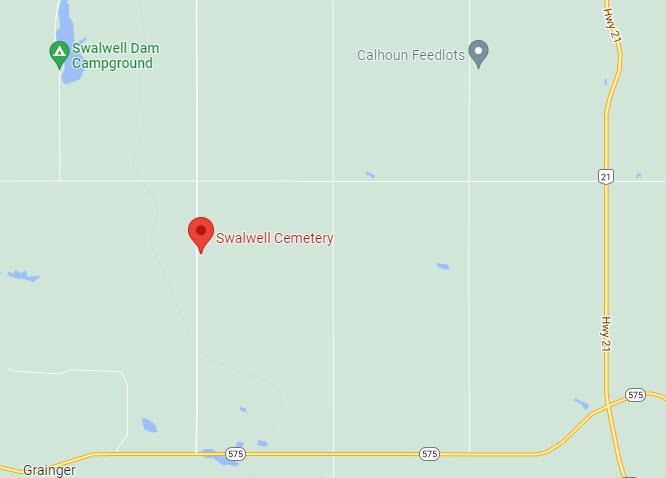Two cows were taken, killed, skinned and had their meat taken
By Diego Flammini
Staff Writer
Farms.com
RCMP are investigating after the discovery of two dead cows in southern Alberta.
The cows were found April 4 behind a cemetery in Swalwell, Airdrie RCMP said.
Swalwell is about 100kms northeast of Calgary.

Approximate location of the Swalwell Cemetry (Google Maps screenshot).
Police believe the cows were dumped there between March 31 and April 4.
The cows, which investigators say are valued at about $5,000 were found dead, skinned and their meat taken. Who owns the animals remains unknown.
Anyone with information on the incident is asked to call Airdrie RCMP at 403-945-7200 or to contact Crime Stoppers.
Cattle rustling in the Prairies has been an issue in the past.
In fall 2021, for example, authorities laid charges of fraud over $5,000 against Shane and Shannon Hoff of Two Hills, Alta., for their involvement in fraudulent cattle sales.
It was alleged they bought cattle with fraudulent cheques and transported the livestock out of province to Saskatchewan without brand inspection.
Producers can take multiple steps to protect themselves and their cattle from theft.
Branding is viewed as the biggest deterrent and best type of evidence because the brand can’t be changed or removed.
Other steps can include locking pastures, placing cameras around the farm and following up on references and doing background checks if hiring new employees.